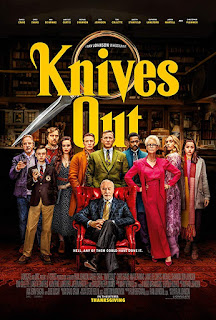No matter your stance on the importance of modern, high-octane, action films, I am overjoyed that there are films like this one that still focus on its human characters more than anything. Nicolas Winding Refn's Drive is a fantastic movie that will satisfy anyone looking for a violently fun car flick or a quietly meditative character study. While this film is an absolutely glorious story on its own, I have been made aware of its similarities to Edgar Wright's Baby Driver, or rather, this movie's impact on the latter. The two films are vastly different in tone and substance and I will try to avoid comparing the two entirely but there is so much good in them both in various ways that I find it difficult to fault one for something the other might have done better. Regardless of how it might have influenced Wright or his own film, Drive is a phenomenal movie that stands on its own with a heavy story, gorgeous compositional cinematography, and some unexpectedly fantastic performances from its entire cast.
A nameless, professional stuntman, known only as The Driver (Ryan Gosling), lives his life moonlighting as a getaway driver for the heists of criminals. After he meets and falls for his neighbor Irene (Carey Mulligan), he gets caught up with her husband Standard (Oscar Isaac) in a heist gone wrong that he had no intention of being a part of and must fight to straighten things out for the sake of everything good that he once had. There are a lot of plot and character similarities that Drive and Baby Driver share, but the one thing that stood out to me the most delineating the two from each other is Drive's lack of focus on action and heightened use of subtle tension. It would be very difficult to classify this film as an action movie, especially since it is much more of a fantasy noir than anything. The use of action and violence in this film is very limited; since it is so rare and the audience expects Gosling's character to be a passive voice in the story, when the violence does hit, it hits hard. This is one of the main differences between these two films. Baby Driver is much more of a musical action film infused with Wright's quirky editing sensibilities while Drive is a darkly lit study of this complex man. I make none of these comparisons to pit one film against the other but there is just so much to gather from both that it makes them equally as interesting. The Driver is much more of an active character who goes out of his way to keep his record clean, as opposed to Ansel Elgort's Baby, who is mostly passive and progresses through his story going with the flow. While some might thirst-watch this film solely for Gosling (guilty), I adore his talents and thought he was a perfect choice to embody this nearly emotionless protagonist. His portrayal of this man on the edge of being broken was incredible and makes his character even more interesting when he does finally break. The drama between him and the antagonists of this film makes his development that much more interesting. There are so many scenes that perfectly demonstrate Refn's mastery of tension and his mesmerizing direction only enhanced this already great story.
One typical rule of screenwriting is that less is more and that theme bursts through this script. There is one scene in particular when The Driver is caught in an elevator with Irene and one of his enemies and kisses her before promptly killing the antagonist. It was really at this moment that I realized how effective Refn's near absence of dialogue from Gosling was so important. The Driver knew what had to be done but took his chance with Irene as he knew that she was never going to be able to look at him the same way again. Silent action scenes like this riddle this film and completely rely on its visual storytelling which is as engrossing as the written dialogue is. Such mastery also exists in the film's opening sequences, establishing the location and occupation of The Driver without any unnecessary exposition. The cinematography from Newton Thomas Sigel was absolutely stellar and completely made this film. His use of composition, showing so much with just some simple pans and smooth movements, was incredible and he has proven himself a master of visual storytelling. I could have easily watched this entire film from just close-ups of Gosling and Sigel's subtly invisible use of the camera. The camerawork paired with Matthew Newman's fantastic editing aimed to linger on its subjects and make the audience take in the pain of what The Driver was experiencing. All of these technical elements are what distinguish this film as a true piece of art and that is something that both this and Baby Driver have in immense common. All of the performances in this film were incredible too, including Carey Mulligan, Oscar Isaac, Bryan Cranston, and Ron Perlman. It is quite the ensemble cast that I would have never expected to work so well together. Stylish in many different ways than other car-focused action films, Drive is such a pristine example of how to make an otherwise generic story rev its engines and crash through the slew of forgettable movies.
Drive is as enthralling as it is reflexive on us as people and even though all of us might not be criminals or getaway drivers, there is a heavyhandedness to this film that truly weighs on its audience so well. Much darker in tone and more unabashedly violent than Baby Driver, this film has so many amazing elements going for it to make it really stand on its own as a compelling story. One thing is for sure, though: the two would make for one hell of a double feature.
My Rating: ★★★★½














